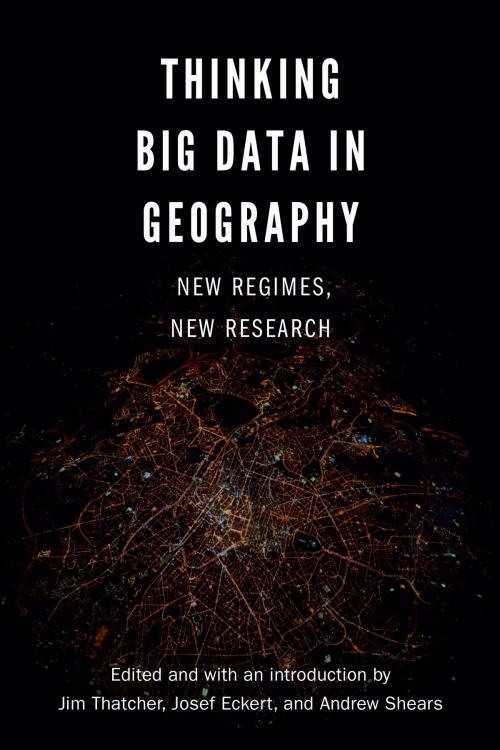Thinking Big Data in Geography
New Regimes, New Research
Nonfiction, Science & Nature, Technology, Remote Sensing, Social & Cultural Studies, Social Science, Human Geography| Author: | ISBN: | 9781496205353 | |
| Publisher: | UNP - Nebraska | Publication: | April 1, 2018 |
| Imprint: | University of Nebraska Press | Language: | English |
| Author: | |
| ISBN: | 9781496205353 |
| Publisher: | UNP - Nebraska |
| Publication: | April 1, 2018 |
| Imprint: | University of Nebraska Press |
| Language: | English |
Thinking Big Data in Geography offers a practical state-of-the-field overview of big data as both a means and an object of research, with essays from prominent and emerging scholars such as Rob Kitchin, Renee Sieber, and Mark Graham. Part 1 explores how the advent of geoweb technologies and big data sets has influenced some of geography’s major subdisciplines: urban politics and political economy, human-environment interactions, and geographic information sciences. Part 2 addresses how the geographic study of big data has implications for other disciplinary fields, notably the digital humanities and the study of social justice. The volume concludes with theoretical applications of the geoweb and big data as they pertain to society as a whole, examining the ways in which user-generated data come into the world and are complicit in its unfolding. The contributors raise caution regarding the use of spatial big data, citing issues of accuracy, surveillance, and privacy.
Thinking Big Data in Geography offers a practical state-of-the-field overview of big data as both a means and an object of research, with essays from prominent and emerging scholars such as Rob Kitchin, Renee Sieber, and Mark Graham. Part 1 explores how the advent of geoweb technologies and big data sets has influenced some of geography’s major subdisciplines: urban politics and political economy, human-environment interactions, and geographic information sciences. Part 2 addresses how the geographic study of big data has implications for other disciplinary fields, notably the digital humanities and the study of social justice. The volume concludes with theoretical applications of the geoweb and big data as they pertain to society as a whole, examining the ways in which user-generated data come into the world and are complicit in its unfolding. The contributors raise caution regarding the use of spatial big data, citing issues of accuracy, surveillance, and privacy.















